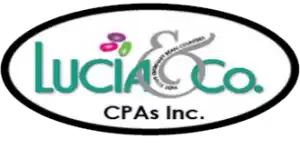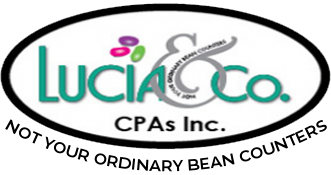Clients are the backbone of your business. They purchase your products, invest in your services, and provide valuable feedback on platforms like Google. Maintaining a good relationship and showing appreciation are crucial for your company’s reputation.
One effective way to demonstrate your gratitude is through thoughtful gifts. Companies that go the extra mile not only thrive but can also see increased profits and expansion opportunities. But are these gestures tax-deductible?
Client Gift Deductible Criteria for 2024
To ensure your client gifts are tax-deductible, follow these updated IRS guidelines for 2024:
- All Gifts Must Be Tangible: Only tangible items are eligible for deduction. This includes a wide range of products such as gourmet food baskets, high-quality office supplies, branded merchandise, and even small electronic gadgets. The tangible nature of these gifts makes them memorable and appreciated, reinforcing your business relationships.
- Gift Value Limit: The IRS sets a cap on the deductible amount for client gifts. Each gift must not exceed $25 in value per client per year. This limit encourages thoughtful, cost-effective gift-giving that acknowledges your clients without excessive spending. It’s important to note that this limit applies to the gift’s value, not the cost of acquiring or delivering it.
- Indirect Gifts Count: When considering the $25 limit, it’s essential to remember that indirect gifts also count. These are gifts given not directly to your client but to someone closely associated with them, such as a family member or their business. For example, if you donate to a client’s charity event, these contributions go towards the $25 limit.
- Married Couples’ Limit: If you and your spouse have involvement in the business, be mindful of the combined gift limit. When both partners give a gift to the same client, only one $25 deduction can be claimed per year. This rule ensures fairness and prevents double-dipping on deductions.
- Promotional Items: The IRS provides an exemption for promotional items that cost less than $4 and have your company logo. These items, such as pens, keychains, or magnets, do not count towards the $25 limit. They are marketing expenses, not gifts. This exemption allows you to distribute branded items freely, increasing your brand’s visibility and keeping your company top-of-mind with clients.
Strategic Considerations for Client Gifts

When planning your client gifts, consider the following strategies to maximize impact while adhering to tax guidelines:
- Personalization: Tailor your gifts to the individual preferences and interests of your clients. Personalized gifts show thoughtfulness and can strengthen your business relationship.
- Timing: Spread out your gift-giving throughout the year to maintain regular contact and avoid clustering gifts around the holiday season.
- Value vs. Cost: Focus on the perceived value of the gift rather than its cost. A well-chosen $20 gift can have a greater impact than a less thoughtful $25 item.
- Documentation: Keep detailed records of all gifts, including receipts, the recipient’s name, and the business purpose of the gift. This documentation will be crucial for tax purposes.
Keeping Records of Each Client Gift Tax Deduction
Effective record-keeping is essential for tracking client gifts and ensuring compliance with tax regulations. Here are some detailed tips for maintaining accurate records of your client gift deductions:
- Detailed Documentation: For each gift, record the following information:
- Cost: The price you paid for the gift, including any incidental expenses such as shipping.
- Description: A brief description of the gift, including any personalization or customization.
- Date of Purchase: The date you bought the gift, which helps track when the gift was given in relation to the tax year.
- Recipient: The name of the client who received the gift, along with their company name and position, if applicable.
- Business Purpose: The reason for the gift, such as thanking a client for their business, celebrating a milestone, or fostering a new relationship.
- Hard Copies:
- Physical Storage: Keep physical copies of receipts, gift descriptions, and any correspondence related to the gift in a well-organized filing system.
- Protection: Store these documents in a fireproof and waterproof safe to protect against damage from disasters.
- Cloud Storage:
- Digital Backup: In addition to hard copies, create digital copies of all gift-related documents and store them in a secure cloud storage service.
- Organization: Use folders and tags to categorize records by year, client, or gift type for easy navigation.
- Security: Choose a cloud storage provider with robust security features, such as encryption and two-factor authentication, to protect your data from unauthorized access.
- Regular Updates: Update your records promptly after each gift to ensure that your documentation is always current and accurate.
- Review and Audit: Periodically review your records to ensure completeness and accuracy before it becomes an issue during tax season.
By maintaining meticulous records and following these best practices, you can streamline the process of claiming client gift deductions and ensure compliance with IRS regulations.
The Federal Gift Tax in 2024

The federal gift tax is a tax imposed by the Internal Revenue Service (IRS) on the transfer of property or assets from one individual to another without receiving full value in return. In 2024, the gift tax rates range from 18% to 40%, depending on the value of the gifts given throughout the year.
The scope of the gift tax is broad, covering various types of transfers:
- Cash Transactions: Direct monetary gifts to individuals.
- Real Estate: Transfer of property ownership, including land and buildings.
- Vehicles: Gifting cars, boats, or other vehicles.
- Forgiven Debts: Canceling a debt owed by someone else.
- Insurance Policy Benefits: Transferring the benefits of a life insurance policy.
- Stock Transfers: Gifting shares of stock or other securities.
For tax purposes, the value of the gift depends on its “fair market value” at the time of the transfer. This is the price that the property would sell for on the open market between a willing buyer and a willing seller.
Annual Gift Tax Exclusion for 2024
In 2024, the IRS has set the annual gift tax exclusion at $18,000 per recipient. This means that an individual can give up to $18,000 to as many people as they wish without incurring any gift tax liability or the need to file a gift tax return. For married couples, the combined annual exclusion is $36,000, allowing them to gift up to $36,000 jointly to each recipient.
It’s important to note that gifts exceeding the annual exclusion limit may require the filing of IRS Form 709, the United States Gift (and Generation-Skipping Transfer) Tax Return. However, exceeding the annual limit does not necessarily result in a tax liability.
Lifetime Gift Tax Exemption
In addition to the annual exclusion, there is a lifetime gift tax exemption, which is the total amount an individual can give away over their lifetime without incurring gift tax. For 2024, the lifetime exemption is set at $13.61 million. This means that even if you exceed the annual exclusion in a given year, you can still avoid paying gift tax until your cumulative gifts exceed the lifetime exemption.
Gifts that exceed the annual exclusion are applied against the lifetime exemption. Once the lifetime exemption is used up, any additional gifts may be subject to gift tax at the applicable rate.
Planning and Reporting
For those planning to make significant gifts in 2024, it’s essential to keep track of the amounts given to each recipient and the remaining balance of your lifetime exemption.
Proper planning and documentation can help avoid unintended tax consequences and ensure compliance with IRS regulations.
If you anticipate exceeding the annual exclusion or have questions about the gift tax, it’s advisable to consult with a tax professional or financial advisor for personalized guidance and assistance with tax planning and reporting.
How To Categorize Client Gifts in Quickbooks
To effectively categorize client gifts in QuickBooks, start by creating a dedicated expense account specifically for client gifts under your Chart of Accounts.
Label it clearly, such as “Client Gifts” or “Client Appreciation Expenses,” to differentiate it from other expense categories. When entering each gift, ensure you document essential details, including the date, recipient’s name, description of the gift, and the amount spent.
If you have multiple clients, consider using sub-accounts for each client to keep track of individual gift expenses.
Additionally, attach digital copies of receipts to the transaction entries for easy reference during tax season.
Regularly review this account to ensure accurate tracking and to simplify your record-keeping and reporting processes.
Summary for 2024
In 2024, you can continue to show appreciation to your clients through thoughtful gifts while taking advantage of tax deductions. Just remember to adhere to the IRS guidelines and keep detailed records to ensure a smooth tax filing process. Additionally, understanding the federal gift tax and its exemptions can help you make informed decisions when giving gifts to loved ones or others.


